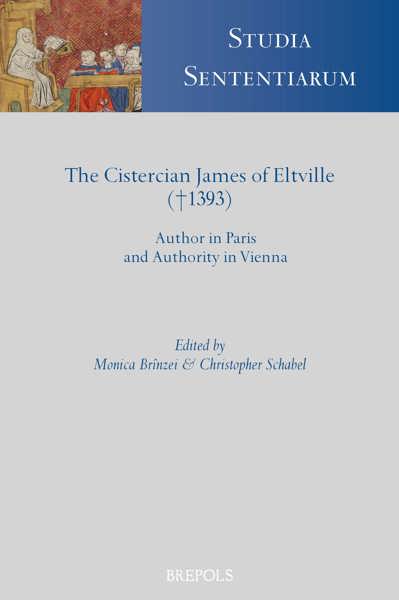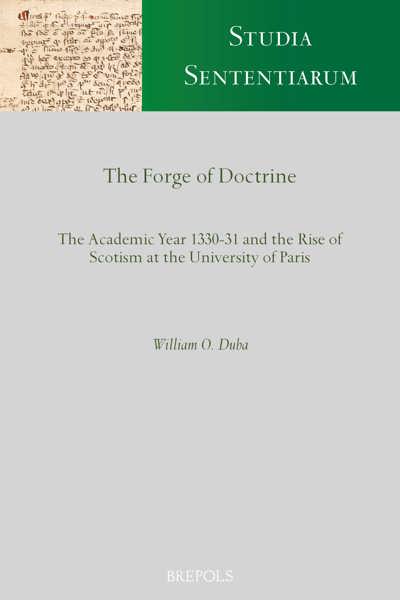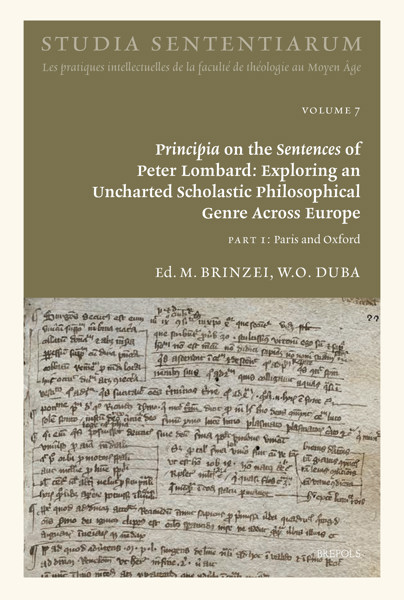
Theologia modernorum
Research on Robert Holcot's Theological Questions
Pascale Bermon, Christophe Grellard (eds)
- Pages: xxii + 485 p.
- Size:156 x 234 mm
- Illustrations:2 b/w, 1 col., 7 tables b/w.
- Language(s):English, French, Latin
- Publication Year:2026
- € 95,00 EXCL. VAT RETAIL PRICE
- ISBN: 978-2-503-61918-7
- Hardback
- Available
- € 95,00 EXCL. VAT RETAIL PRICE
- ISBN: 978-2-503-61919-4
- E-book
- Available
This volume provides access to unique and previously unedited texts by Robert Holcot.
Senior researcher, a member of the Laboratoire d'Études sur les Monothéismes (University PSL-CNRS), Pascale Bermon is a historian of medieval texts and thought, specialist in medieval scholars of the first half of the 14th century, such as Gregory of Rimini and Robert Holcot. / Membre du Laboratoire d’études sur les monothéismes (LEM/UMR 8584), Pascale Bermon est chercheuse au CNRS, habilitée à diriger des recherches, spécialiste des rapports entre la philosophie et la théologie au XIVe siècle.
Christophe Grellard is Directeur d’Études (full Professor) at EPHE, PSL and a member of the Laboratoire d'Études sur les Monothéismes. His research focuses on the history of philosophy and theology in the Middle Ages (12th to 16th centuries). / Christophe Grellard est agrégé de philosophie, docteur de l'Université de Tours. Ses recherches portent sur l'histoire de la philosophie médiévale. Il est directeur d'études à l'Ecole Pratiques des Hautes Etudes, section des sciences religieuses, où il occupe la chaire d'Histoire des philosophies et des théologies médiévales de l'Occident latin.
Robert Holcot († 1349), active at Oxford in the years following William of Ockham’s departure, has been the subject of renewed interest partly due to the exceptional success of his work on Wisdom, a bestseller until the 17th century. This volume offers an analysis of his unedited theological questions, a critical edition of which has been a desideratum for many years. This varied corpus, hitherto mistakenly considered to consist solely of ‘quodlibetic questions’, sheds light on the scholarly practices of the network of theologians who, around Holcot, disputed these questions at Oxford in the 1330s, at the origin of the nominalist turn in theology. Here we see at first hand the shifting boundary between secular knowledge and religious beliefs, the intertwining of scholarly rationality and scholastic reason at work in the medieval university. Several texts are published here: the Introitus in Mattheum, the Determinationes II and IV, question 7 of the Quodlibet B on the halo of the doctors and two short questions on the guardian angels.
Contributors to this volume: Pascale Bermon, Joël Biard, Michael W. Dunne Christophe Grellard, Dominique Poirel, Amandine Postec, Chris Schabel, John T. Slotemaker, Jacques Verger
Robert Holcot († 1349), actif à Oxford dans les années qui suivirent le départ de Guillaume d’Ockham, fait l’objet d’un regain d’intérêt en raison du succès exceptionnel que rencontra son œuvre sur la Sagesse, bestseller jusqu’au XVIIe siècle. Le présent volume offre une analyse de ses questions théologiques inédites, dont l’édition critique est réclamée depuis de nombreuses années par les spécialistes. Ce corpus varié, jusqu’ici considéré à tort comme composé uniquement de "questions quodlibétiques", éclaire les pratiques savantes du réseau de théologiens qui, autour d’Holcot, disputaient ces questions à Oxford dans les années 1330, à l’origine du tournant nominaliste de la théologie. On y saisit sur le vif la frontière mouvante entre savoirs profanes et croyances religieuses, l’intrication de la rationalité savante et de la rationalité croyante, la raison scolastique à l’œuvre dans l’espace universitaire médiéval. Plusieurs textes sont ici édités: l’Introitus in Mattheum, les Determinationes II and IV, la question 7 du Quodlibet B sur l’auréole des docteurs et deux courtes questions sur les anges gardiens.
Pascale Bermon & Christophe Grellard, Introduction
General Papers
Jacques Verger, Les cursus d'études des Dominicains d'Oxford
Chris Schabel, Sorting Out Robert Holcot’s Assorted Oxford Theological Questions
Quodlibet B
Christophe Grellard, Intériorité et extériorité chez Holcot. Renaissance des morales de l’intention
Quodlibet B: On question 7
Dominique Poirel, Comment éditer les questions théologiques de Robert Holcot? L'exemple de la question « Utrum aureola doctoris... »
Pascale Bermon & Dominique Poirel, La question quodlibétique de Robert Holcot sur l'auréole des docteurs : une édition préliminaire
Pascale Bermon, De la corona à la coronula : les rites universitaires au fil du rasoir d’Ockham (Holcot, Quodlibet B, question 7)
Quodlibet C
Amandine Postec, « Dieu peut-il punir ad condignum ? » Deux questions quodlibétiques de Robert Holcot
Quodlibet A
Joël Biard, Robert Holcot : portrait d’un théologien en nominaliste
In Mattheum
John Slotemaker & Chris Schabel, Robert Holcot’s Principial Sermon or Introitus to His Oxford Bachelor Lectures on Matthew, 10 February 1333
Determinationes
Chris Schabel, Robert Holcot’s Principial Questions on Grace, Merit, and Sin: A Preliminary Edition of the Determinationes II and IV
Michael W. Dunne, Robert Holcot on the Contingency of the Beatific Vision in Determinatio IX
Miscellaneous questions
Pascale Bermon, Deux attaques de Robert Holcot contre les anges gardiens
John Slotemaker, Robert Holcot’s Reading of Anselm of Canterbury (Pembroke 236, Question 51): “whether or not the doctrine of the venerable Anselm rationally ought to be condemned”
Indices
Index manuscriptorum
Index nominum (ante 1800)
Index nominum (post 1800)




